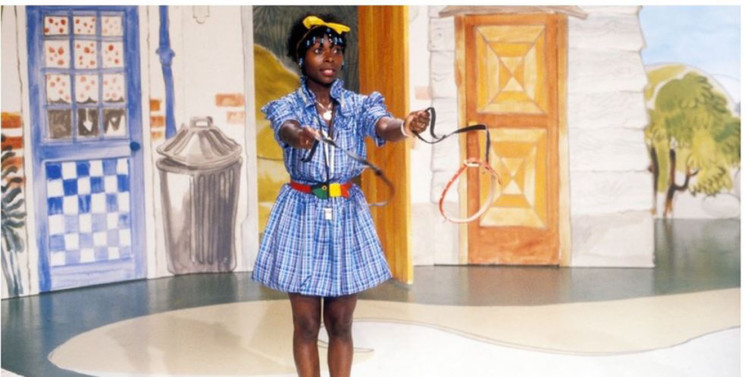
Cartoons are taking over, warns Floella.
Former TV presenter Floella Benjamin is calling for more programmes featuring “real people” to be made for children.
The 64-year-old who appeared on the much-loved 1970s show Play School believes there are too many cartoons on television,
The presenter-turned-politician is now calling for tax breaks to help ramp up the number of shows made featuring real people children can identify with. She has warned of a “cultural invasion” from American cartoons and claims it is essential children watch more shows like Blue Peter and Grandpa In My Pocket.
She said: “In the past 10 years, we’ve seen a decline in the number and range of quality programmes produced for children in this country.
“If our kids are to feel part of the society in which they live, they need to see themselves represented on screen, to help them understand their world.”
She warned the situation was so bad, producers were having to beg people to work on their programmes for free as budgets were so stretched. Live-action TV is more expensive to make than cartoons because it needs more people to work on it as well as a studio. Animation is largely done on labour-saving computers. Cartoons are also attractive as they can be sold around the world with broadcasters adding dialogue in their own language.
Now a Lib Dem peer, Baroness Benjamin will use a House of Lords speech this week to call on the Government to introduce tax breaks for children’s TV similar to those enjoyed by the film and computer games industry.
She has said: “A tax credit would secure relevant British programming for a generation of children to come. We can all gaze back at our favourite children’s programme through the square window. A tax credit would ensure that there was less cultural invasion.” She will follow up her demand with a speech at the Children’s Media Conference in Sheffield on Friday.
She’s expected to say of the tax credit scheme: “It’s necessary and it’s desperately needed, not only for the sake of the future of our industry but for our children’s well-being. There is an overwhelming cultural case for the introduction of the tax credit.
“I started my career in children’s TV nearly 40 years ago and am passionate about its future. I benefited from the skills and experiences I learnt and the industry has been a launch pad for many other successful careers. It’s heart-breaking to hear producers talk of the industry’s fragile financial state. Some describe being pulled from pillar to post struggling to finance shows.
“More worryingly, others even say that, to deliver top-quality programmes, they have to beg and borrow time from fellow professionals.”
The BBC is the main commissioner of popular live-action programmes such as In The Night Garden and Topsy and Tim on Cbeebies, or Blue Peter and Junior Vets on CBBC. But they are competing against channels such as CITV whose top-rated shows are cartoons such as Horrid Henry, Ben 10 and Pokemon. Dedicated animated channels like The Cartoon Network also provide competition.
ITV, once home to Magpie, Tiswas and Knightmare, now barely commissions any original programming.
A Treasury spokeswoman said: “The Government is committed to supporting the creative industries and has introduced three new tax reliefs for animation, video games and high-end television. A fourth relief for theatre production is due to be implemented in September. “Any proposal for new relief must be assessed for its effectiveness, wider economic impact, ability to stand up against abuse and the cost to the Exchequer.”
Play School was watched by millions in the 1970s. Other favourites that featured real people included Play Away, Just William,Fingerbobs and Rainbow.
What was your favourite children’s TV show? A cartoon or one featuring ‘real people’? Tell us in the comments below

Enjoy the convenience of having The Sunday Post delivered as a digital ePaper straight to your smartphone, tablet or computer.
Subscribe for only £5.49 a month and enjoy all the benefits of the printed paper as a digital replica.
Subscribe